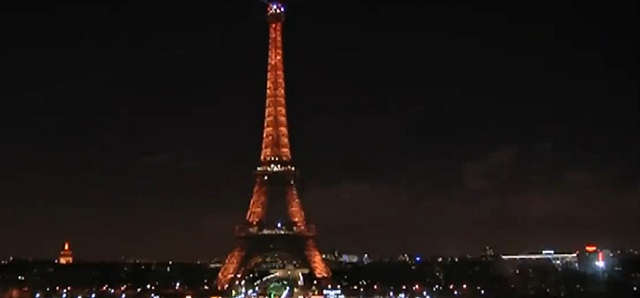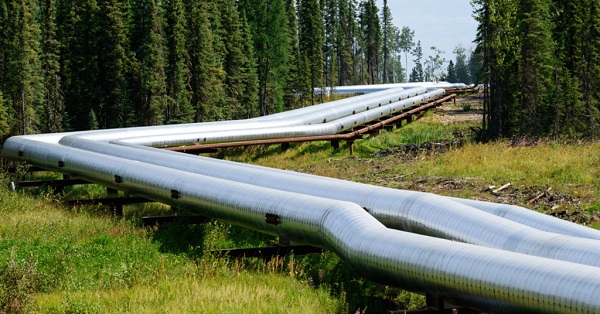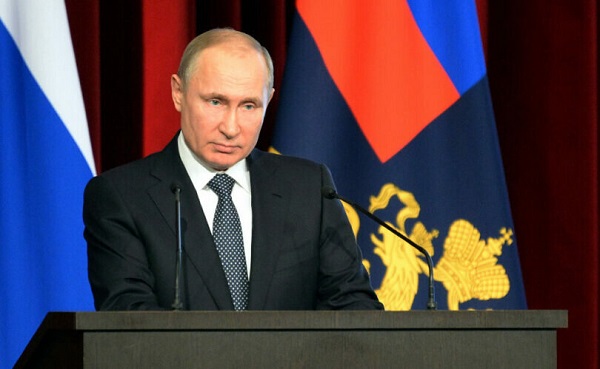Politics
Worries About ‘Existential Threat’ From Climate Change Suddenly Put On Hold For Paris Olympics

 From the Daily Caller News Foundation
From the Daily Caller News Foundation
The U.S. Olympic team will be supplied with room air conditioning units, joining other countries like Germany, Australia, the United Kingdom, Canada and Italy.
Organizers of the Summer Olympics Games to be held in Paris next month were hoping to force the games to be held sans air conditioning — what a wonderful virtue signal that would send to the climate-alarmed public!
The plan, as USA Today reported, was to force all event venues and athlete housing units to rely on a geothermal cooling system devised by the French. But, you know, it can get hot in Paris in the summer, and participating athletes and countries had some concerns about it.
So, despite the grand, centrally planned net-zero initiatives financed by trillions of debt-funded dollars and euros and pounds, many countries are planning to keep their athletes calm, collected and properly cooled with electricity-hogging room a/c units.
Note that the list of countries above includes some that are led by the world’s most aggressive and notorious climate scolds.
German leaders in this century have succeeded in largely destroying what had been the industrial powerhouse of Europe at the altar of climate alarmism, investing billions of debt-funded euros in a Quixotic attempt to power their society with windmills. That plan has been so successful to date that last winter, in a desperate attempt to avoid power blackouts, the government there resorted to reactivating mothballed coal plants and tore down a wind development to expand a domestic coal mining operation.
In the UK, the Tories — ostensibly the “conservatives” in Britain — now face an electoral wipeout of unprecedented proportions due in part to their buying whole hog into climate alarmist dogma.
In Canada, Prime Minister Justin Trudeau, whose public approval rating would make President Joe Biden blush, faces a similar fate for similar reasons in national elections that will take place in 2025.
The governments of Australia and New Zealand, in nominally “conservative” or “liberal” regimes alike, have also embarked well down the net-zero path to deindustrialization.
Yet every one of these countries will be shipping out hundreds of energy consuming, greenhouse-gas-emitting air conditioners to Paris.
No national government has invested more time and more debt-funded dollars in virtue signaling and lecturing the public about climate change in recent years than the Biden regime. To hear President Joe Biden Biden, Energy Secretary Jennifer Granholm, Transportation Secretary Pete Buttigieg, Climate Envoy John Podesta, former Climate Envoy John Kerry and Vice President Kamala Harris tell it, a 1.5-degree rise in temperature is in fact an “existential threat,” one that requires us to saddle our great-grandchildren with trillions of more dollars in unsustainable debt to address right now, or — wait for it — we will all die!
But hey, we can’t have our Olympic athletes suffering in rooms where the Paris geothermal cooling system might only get temperatures down to an unbearable 78 degrees Fahrenheit, so it is imperative that the United States join the room a/c caravan across the Pond to gay Paree.
That is basically what USA Today quotes U.S. Olympic and Paralympic CEO Sarah Hirshland as saying: “We have great respect for the work that’s been done by the Paris organizing committee in particular and their focus on sustainability,” Hirshland said. “As you can imagine, this is a period of time in which consistency and predictability is critical for Team USA’s performance. In our conversations with athletes, this was a very high priority and something that the athletes felt was a critical component in their performance capability.”
But wait: If climate change is truly an existential threat to all mankind, shouldn’t the desires of a few thousand Olympics athletes to stay cool in their rooms simply be ignored? For the “greater good” and all that stuff?
After all, that is what the central governments in every one of these countries do whenever public opinion disapproves of their policy choices. Why should this become an exception?
The global religious belief that mankind can control the climate like it has a thermostat we can turn up and down at will is an example of unbridled hubris that is unrivalled in human history. That hubris is only exceeded by the rank hypocrisy practiced by the loudest and most visible of the religion’s adherents.
David Blackmon is an energy writer and consultant based in Texas. He spent 40 years in the oil and gas business, where he specialized in public policy and communications.
The views and opinions expressed in this commentary are those of the author and do not reflect the official position of the Daily Caller News Foundation
(Featured Image Media Credit: Screen Capture/PBS)
National
Liberal bill “targets Christians” by removing religious exemption in hate-speech law

From LifeSiteNews
Conservative MP Jamil Jivani called a Canadian bill that would criminalize quoting parts of the Bible ‘cultural imperialism targeting Christians, Muslims, and Jews.’
Canadian pro-life Conservative MP Jamil Jivani said the Liberal government of Prime Minister Mark Carney is targeting Christians and people of other faith with a bill that would criminalize quoting parts of the Bible.
“The Liberal Party and Mark Carney are engaged in cultural imperialism, targeting Christians, Muslims, and Jews,” Jivani said in an X post last week that included a link to a video of him speaking out against Bill C-9 in the House of Commons on December 4.
Jivani said in clear terms that government should “not make its way into churches, mosques and synagogues in an effort to bring Liberal values, nor use the criminal justice system to enforce Liberal values on the private religious lives of Canadian citizens.”
He said that this is “precisely what a colonizer would do,” adding, “That is precisely what a cultural imperialist would do.”
Jivani noted that when looking at the “language of colonizers and cultural imperialists,” Canadians need to recognize that when the Liberals “attack scripture, when they attack the Bible, when they attack our religions and when they try to justify bringing the criminal justice system into our places of worship, they are trying to strip away the things that make us well-rounded people.”
“To them, we are simply economic inputs. We should have no culture. They believe we should have no meaning in our lives,” he added.
Bill C-9, the Combating Hate Act, as reported by LifeSiteNews, has been blasted by constitutional experts as allowing empowered police and the government to go after individuals it deems to have violated a person’s “feelings” in a “hateful” way.
As reported by LifeSiteNews, a government insider revealed that the Liberal government plans to remove religious exemptions from Canada’s hate-speech laws.
Concerns over Bill C-9 have resulted in the Canadian Conference of Catholic Bishops (CCCB) condemning the proposed restrictions on quoting religious texts, as reported by LifeSiteNews.
In a December 4 letter to Carney, the CCCB firmly advocated against proposed amendments to Bill C-9,
“(T)he proposed elimination of the ‘good faith’ religious-text defence raises significant concerns,” reads the letter, signed by Bishop Pierre Goudreault, the CCCB president.
“This narrowly framed exemption has served for many years as an essential safeguard to ensure that Canadians are not criminally prosecuted for their sincere, truth-seeking expression of beliefs made without animus and grounded in long-standing religious traditions.”
Other Conservative MPs have voiced concerns about Bill C-9.
Conservative MP Leslyn Lewis recently blasted the Carney government’s plan to criminalize parts of the Bible as an attack on “Christians,” warning it sets a “dangerous precedent” for Canadian society.
In response, the party launched a petition over fear that religious texts could be criminalized
Liberal MP Marc Miller had said earlier in the year that certain passages of the Bible are “hateful” because of what it says about homosexuality and those who recite the passages should be jailed. As reported by LifeSiteNews, he was recently appointed as a government minister by Carney.
Great Reset
Surgery Denied. Death Approved.

Canada’s assisted-death regime has reached a point most people assumed was dystopian fiction and it’s doing so with bureaucratic calm. A woman in Saskatchewan, Jolene Van Alstine, suffering from a rare but treatable parathyroid disease, has applied for MAiD not because she is dying, but because she can’t access the surgery that would let her live.
Read that again. Not terminal. Not untreatable. Just abandoned by a system that has the audacity to call itself “universal.”
Kelsi Sheren is a reader-supported publication.
To receive new posts and support my work, consider becoming a free or paid subscriber.
Her assisted death is scheduled for January 7, 2026.
And the country shrugs. Van Alstine described spending years curled on a couch, nauseated, in agony, isolated, and pushed past endurance. The disease is brutal, but treatable a surgery here, a specialist there. The kind of medical intervention that in a functional system wouldn’t even make the news.
But in Saskatchewan? There are no endocrinologists accepting new patients. Without one, she can’t get referred. Without a referral, she can’t get surgery. Without surgery, she loses her life either slowly through suffering, or quickly through state-sanctioned death.
If you’ve ever lived through pain that warps time…
If you’ve ever had your mind hijacked by trauma…
If you’ve ever stared down suffering with no end in sight…
You know how thin the line can get between endurance and surrender.
And that’s why this story hits differently: it reveals how fragile people become when the system meant to protect them becomes an accomplice in their despair.
Canada frames MAiD as empowerment. As compassion. As choice.
But choice is only real when the alternatives are viable.
If your options are slow agony or assisted death, that’s not autonomy it’s coercion with a friendly tone.
Disability advocates, chronic-pain patients, the elderly, and low-income Canadians have been sounding the alarm for years: MAiD is expanding faster than support systems can catch up. Every expansion widens the chasm between the rhetoric of compassion and the lived experience of those who actually need help.
The Canadian Human Rights Commission itself warned that MAiD is being accessed because people cannot get the services required to live with dignity. And dignity matters. Anyone who has lived on the edge knows this: humans don’t just need survival, we need a reason to keep surviving.
When the healthcare system withholds that, death can look like mercy. This is the part polite society doesn’t want to confront.
Canada’s healthcare system is collapsing. Not strained. Not overburdened. Collapsing.
We have a growing list of citizens choosing death because medicine has become a lottery →
• a quadriplegic woman who applied for MAiD because she couldn’t secure basic home-care support
• veterans offered MAiD instead of trauma treatment
• homeless Canadians considering MAiD because they can’t survive winter
And now a woman denied a simple, lifesaving surgery.
At some point, we have to call this what it is: a nation outsourcing its failures to death. I’ve sat with veterans who couldn’t find themselves inside their own minds after war. I’ve watched people suffer silently because bureaucracy didn’t move fast enough to keep up with their pain.
I’ve coached clients who were one dropped ball, one missed appointment, one shut door away from losing the will to fight.
The lesson is the same every time. People don’t break because they’re weak. People break because they’re left alone with their suffering.
Van Alstine wasn’t offered community.
She wasn’t offered care.
She was offered an exit.
And she took it.
Not because she wanted to die but because Canada didn’t give her any path to live.
We need to stop pretending this is compassionate. Compassion is presence. Compassion is support. Compassion is a surgeon who actually exists, a referral that actually happens, a system that catches someone before they fall into the dark.
If MAiD is going to exist, it must be the last, quiet, grave option not the discounted aisle Canada sends you to when the cost of real care is too high.
A society reveals its soul by how it treats the people who can’t fight for themselves.
Right now, Canada is revealing something hollow.
People will debate the ethics of assisted dying forever. Fine. Debate it. But this is the wrong battleground. The real question is this →
What does it say about a country when death is easier to access than medical care?
Until Canada answers that honestly, we’re going to see more names on the calendar scheduled deaths, stamped and approved — for people who didn’t want to die. They just wanted someone to give them a chance to live.
Canada has failed every single citizen, and not a single person seems to care.
KELSI SHEREN
– – – – – – – – – – – –
SOURCE: https://righttolife.org.uk/
– – – – – – – – – – – –
One Time Donation! – Paypal – https://paypal.me/
Buy me a coffee! – https://buymeacoffee.com/
Let’s connect!
Youtube – https://www.youtube.com/@
Substack: https://substack.com/@
TikTok – https://x.com/KelsiBurns
-

 Focal Points1 day ago
Focal Points1 day agoCommon Vaccines Linked to 38-50% Increased Risk of Dementia and Alzheimer’s
-

 Business2 days ago
Business2 days agoLoblaws Owes Canadians Up to $500 Million in “Secret” Bread Cash
-

 Business21 hours ago
Business21 hours agoThe EU Insists Its X Fine Isn’t About Censorship. Here’s Why It Is.
-

 Dan McTeague2 days ago
Dan McTeague2 days agoWill this deal actually build a pipeline in Canada?
-

 Economy17 hours ago
Economy17 hours agoAffordable housing out of reach everywhere in Canada
-

 Media2 days ago
Media2 days agoThey know they are lying, we know they are lying and they know we know but the lies continue
-

 Censorship Industrial Complex2 days ago
Censorship Industrial Complex2 days agoUS Condemns EU Censorship Pressure, Defends X
-

 Focal Points2 days ago
Focal Points2 days agoThe West Needs Bogeymen (Especially Russia)





